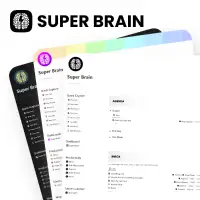The Power of Life Goals and How to Set Life Goals
The Power of Life Goals and How to Set Life Goals: Turning Dreams into Reality.
“Twenty years from now, you will be more disappointed by the things you didn’t do than by the ones you did do.” – Mark Twain
Imagine for a moment that you’re aboard a ship, and you have the power to steer it in any direction you choose. The vast expanse of the ocean lies before you, and the possibilities are endless. As Mark Twain’s words suggest, the regret of missed opportunities can weigh heavier than the challenges you embrace.
In the journey of life, your goals act as the compass that guides your ship towards the destination you desire. They are not mere dreams but the blueprints of your future, the key to transforming aspirations into reality. In this blog post, we will delve into the transformative power of life goals and the art of setting them.
We will explore:
- The profound significance of having life goals that go beyond wishful thinking.
- The diverse types of life goals that encompass various facets of existence, from career and personal development to health, relationships, and finances.
- A step-by-step guide to the process of setting life goals, from introspective self-reflection to the practicality of SMART (Specific, Measurable, Achievable, Relevant, and Time-bound) goals.
- Insights into the obstacles and challenges that may impede your journey to achieving life goals and strategies to overcome them.
- The pivotal role of accountability, motivation, and focus in staying the course.
- The importance of celebrating your achievements, both small and monumental, to fuel your determination.
- A resourceful toolbox of books, courses, apps, and websites to support your aspirations.
Prepare to embark on a voyage of self-discovery, empowerment, and the realization of your dreams. Your ship is ready to set sail, and your life goals will be your guiding stars.

Understanding the Significance of Life Goals
Life goals are the compass points that guide our journey through life, providing us with direction, purpose, and a sense of fulfillment. In this section, we will delve into the fundamental importance of life goals, exploring their definition, impact on personal growth, and the statistical evidence that underlines their significance.
Defining Life Goals
Life goals are the aspirations, ambitions, and objectives that we set for ourselves to accomplish throughout our lives. They encompass various aspects, including our career, personal development, health, relationships, and financial achievements. Life goals represent the vision of the life we want to lead, the dreams we aim to turn into reality, and the roadmap to get there.
The Impact on Personal Growth and Fulfillment
The significance of life goals cannot be overstated, as they play a pivotal role in personal growth and fulfillment:
- Direction and Clarity: Life goals provide us with direction, helping us chart a course through the complexities of life. They offer clarity about what truly matters to us and where we want to focus our energy and resources.
- Motivation and Drive: Having clear life goals ignites motivation. It propels us to take action, persevere through challenges, and maintain our focus on the path to achievement.
- Fulfillment and Satisfaction: Achieving life goals contributes to a profound sense of fulfillment. It bolsters our self-esteem and provides a sense of purpose, making us feel content and satisfied with our accomplishments.
- Continuous Learning: Pursuing life goals often involves learning and personal development. This continuous growth and self-improvement are essential for a meaningful and fulfilling life.
Statistical Evidence
Research has consistently shown the positive impact of setting and achieving life goals. While statistics alone cannot capture the entirety of the experience, they do highlight the benefits:
- According to a study by Dominican University of California, individuals who write down their goals are significantly more likely to achieve them.
- The American Psychological Association reports that setting and pursuing meaningful goals can improve psychological well-being and overall life satisfaction.
- A Harvard Business Review article revealed that individuals with well-defined goals tend to be more engaged, productive, and motivated in their personal and professional lives.
The evidence is clear: life goals are not mere daydreams; they are the building blocks of a purposeful and rewarding life. As we delve deeper into this blog post, we will explore how to set these goals effectively, overcome obstacles, and ultimately turn your dreams into reality.
Types of Life Goals
Life goals come in various categories, each contributing to a well-rounded and fulfilling life. In this section, we will explore these different types of life goals, highlighting how they shape our existence and provide examples of specific goals within each category.
Career Goals
Career goals pertain to your professional life, encompassing your ambitions and aspirations within your chosen field. These goals often serve as the cornerstone of your life goals and can include:
- Career Advancement: Goals to climb the corporate ladder, attain leadership roles, or achieve a specific position within your organization.
- Skill Development: Aspirations to acquire new skills or qualifications, which can enhance your career prospects.
- Entrepreneurship: Goals related to starting and growing your own business.
- Work-Life Balance: Aspiring to maintain a healthy balance between your work and personal life.
Career goals are instrumental in providing financial stability and a sense of accomplishment while contributing to personal growth.
Personal Development Goals
Personal development goals focus on self-improvement and growth, fostering a sense of purpose and well-being. These can include:
- Education and Learning: Goals to continue your education, pursue degrees, or learn new subjects or languages.
- Health and Wellness: Aspirations for physical and mental well-being, including fitness, diet, and emotional health.
- Hobbies and Interests: Goals that involve pursuing passions and hobbies that enrich your life.
- Self-Discovery: Aspirations to better understand yourself, your values, and your purpose in life.
Personal development goals enhance your sense of self, leading to increased confidence, resilience, and a more meaningful life.
Health and Wellness Goals
Goals in this category center on your physical and mental health, emphasizing well-being and vitality:
- Weight Management: Aspirations related to losing, gaining, or maintaining weight for optimal health.
- Fitness and Exercise: Goals to improve your physical fitness, strength, and endurance.
- Mental Health: Aspirations to manage stress, anxiety, or achieve better mental well-being.
- Nutrition: Goals related to eating habits, diet, and overall nutrition.
Health and wellness goals are fundamental for maintaining a strong and vibrant life.
Relationship Goals
These goals revolve around your personal connections and interactions with others:
- Family: Goals related to improving relationships with family members or expanding your family.
- Friendships: Aspirations to strengthen existing friendships or make new ones.
- Romantic Relationships: Goals involving dating, building a strong partnership, or improving an existing relationship.
- Social Connections: Aspirations to network and create valuable social connections.
Relationship goals enrich your life by fostering strong, supportive bonds with others.
Financial Goals
Financial goals are centered on managing and growing your finances:
- Savings: Goals for creating and maintaining an emergency fund or savings for specific purposes.
- Debt Management: Aspirations to reduce or eliminate debt.
- Investments: Goals for building wealth and securing your financial future through investments.
- Financial Independence: Aspirations to achieve a state of financial stability and independence.
Financial goals provide security and enable you to pursue other life goals without financial constraints.
By setting and pursuing life goals in each of these categories, you create a well-rounded and fulfilling life. These goals contribute to your personal growth, happiness, and overall sense of purpose, ensuring that you live a life that is both rewarding and meaningful.
The Process of Setting Life Goals
Setting life goals is a structured process that empowers you to transform your dreams into reality. In this section, we will break down this process step by step, emphasizing the crucial role of self-reflection, SMART goals, and effective goal organization.
Self-Reflection and Discovery
Before you embark on your goal-setting journey, it’s essential to start with self-reflection. This phase involves:
- Identifying Values: Reflect on your core values, the principles that guide your life. What truly matters to you? Is it family, personal growth, success, or something else?
- Exploring Passions: Consider your passions and interests. What activities make you feel most alive and fulfilled? What would you pursue if time and money were no object?
- Clarifying Aspirations: Visualize your ideal life. What does it look like in different aspects, including your career, personal development, relationships, health, and finances? Envision your long-term dreams.
Self-reflection forms the foundation of setting life goals. It connects your goals to your core values, passions, and aspirations, making them more meaningful and aligned with your true self.
Setting SMART Goals
To ensure your goals are effective and actionable, it’s important to follow the SMART criteria:
- Specific: Your goals should be clear and specific. Define exactly what you want to achieve. Vague goals are difficult to work toward.
- Measurable: You should be able to measure your progress and determine when you’ve reached your goal. Quantify your goals where possible.
- Achievable: Goals should be realistic and attainable. While it’s great to dream big, ensure your goals are feasible with the resources and time available.
- Relevant: Goals should be relevant to your values, passions, and overall life vision. They should align with your long-term aspirations.
- Time-bound: Set a deadline for achieving your goals. This creates a sense of urgency and commitment.
For example, instead of saying, “I want to get in shape,” a SMART goal might be, “I will lose 10 pounds in the next three months by working out three times a week and maintaining a healthy diet.”
Tips for Prioritizing and Organizing Goals
With numerous life goals across different categories, effective organization and prioritization are crucial:
- Prioritize: Determine which goals are most urgent or essential to your well-being and prioritize them. Some goals may need immediate attention, while others can be long-term aspirations.
- Categorize: Group similar goals into categories (e.g., career, personal development, health) to make them more manageable and organized.
- Create Milestones: Break down larger goals into smaller milestones or sub-goals. These smaller achievements help you track your progress and stay motivated.
- Set Deadlines: Assign deadlines to each goal to create a sense of urgency and accountability. Be realistic about the time required to achieve each goal.
- Use Tools: Utilize tools such as goal-setting apps, calendars, or journals to record and track your goals. These tools can help you stay organized and committed.
Setting and achieving life goals is a dynamic process that requires dedication and adaptability. By following these steps, you’ll create well-defined, meaningful goals that align with your core values and passions. This approach ensures that your goals are actionable and effective, bringing you one step closer to turning your dreams into reality.
Overcoming Obstacles and Challenges
Pursuing life goals is an exhilarating journey, but it’s not without its share of obstacles and challenges. In this section, we’ll explore the common roadblocks that people often encounter on their path to achieving life goals, and provide effective strategies and techniques to overcome them. Additionally, we’ll draw inspiration from real-life success stories of individuals who faced adversity and triumphed in their pursuit of life goals.
Common Obstacles and Challenges
- Procrastination: The habit of delaying action can hinder progress. Overcoming procrastination is a significant challenge for many goal-setters.
- Time Management: Balancing life goals with work, family, and other commitments can be tricky. Poor time management can lead to feelings of overwhelm.
- Lack of Motivation: Maintaining consistent motivation can be difficult, especially when the initial excitement wears off.
- Fear of Failure: The fear of not succeeding can paralyze people, preventing them from taking action toward their goals.
- Financial Constraints: Limited resources or financial constraints can impede progress, particularly for goals related to education, career advancement, or starting a business.
- External Obstacles: Life can throw unexpected challenges like health issues, family crises, or economic downturns, making goal pursuit more complex.
Strategies and Techniques
- Break Goals into Smaller Steps: Divide large goals into smaller, manageable tasks or milestones. This approach makes progress more achievable and less overwhelming.
- Time Management: Develop effective time management skills by creating schedules, setting priorities, and minimizing distractions.
- Motivation Techniques: Utilize various motivation strategies, such as visualizing success, setting rewards, or finding an accountability partner.
- Resilience Building: Strengthen your resilience by developing a growth mindset. View setbacks as opportunities for learning and growth.
- Fear Management: Acknowledge and address fears of failure by breaking them down into specific concerns. Then, develop strategies to address each fear.
- Financial Planning: If financial constraints are a challenge, create a realistic financial plan and explore options like scholarships, grants, or loans for education-related goals.
Inspiring Success Stories
Real-life success stories demonstrate the incredible human capacity to overcome adversity and achieve life goals:
- Oprah Winfrey: Despite a challenging childhood and numerous setbacks, Oprah Winfrey became one of the most influential media moguls globally, illustrating the power of resilience and determination.
- J.K. Rowling: The author of the beloved Harry Potter series faced personal and financial hardships but persisted in her writing career. Her perseverance showcases the triumph of creativity and determination.
- Stephen Hawking: Diagnosed with ALS, Stephen Hawking continued his groundbreaking work in theoretical physics, demonstrating the human potential to achieve remarkable goals despite physical limitations.
These stories remind us that obstacles are part of the journey to achieving life goals. The key is to develop strategies and resilience to overcome these challenges and continue moving forward. By learning from these successful individuals, we find inspiration and strength to navigate our own path to goal achievement.
The Role of Accountability and Tracking Progress
Accountability is a cornerstone of successful goal setting. In this section, we will explore the crucial role of accountability in the goal-setting process, provide practical suggestions for maintaining accountability, and share real-life examples of how accountability can drive progress.
The Importance of Accountability
Accountability is the commitment to taking responsibility for one’s actions and outcomes. It serves as a powerful motivator in the goal-setting process for several reasons:
- Commitment: When you’re accountable, you’re more committed to your goals. You’re less likely to abandon them when faced with challenges.
- Progress Tracking: Accountability helps you track your progress, ensuring that you stay on course and make necessary adjustments.
- Motivation: Knowing that you have to answer to someone, whether it’s yourself, a mentor, or a group, can boost your motivation to work diligently towards your goals.
- Feedback and Guidance: Being accountable often involves seeking feedback and guidance, which can provide valuable insights and support for your journey.
Practical Suggestions for Maintaining Accountability
- Set Milestones: Break your larger goals into smaller, specific milestones with deadlines. These mini-goals are easier to track and provide a sense of achievement along the way.
- Seek Support from Mentors or Coaches: Find a mentor, coach, or an accountability partner who can offer guidance, support, and objective feedback as you work towards your goals.
- Join or Create an Accountability Group: Participating in a group with similar goals creates a support system that holds you accountable. Regular check-ins and sharing progress can be motivating.
- Use Accountability Tools: Employ goal-tracking apps, online platforms, or physical tools like journals to document and monitor your progress.
- Public Accountability: Sharing your goals with your network, whether on social media or in person, can create a sense of public accountability.
Real-Life Examples of Accountability
- Benjamin Franklin’s Virtue Journal: Benjamin Franklin famously tracked his progress on a daily basis, focusing on 13 virtues he wanted to cultivate. This self-imposed accountability system played a crucial role in his personal development.
- Weight Watchers: Weight Watchers, now known as WW, utilizes a group-based accountability system. Members attend meetings to discuss their goals, challenges, and progress, fostering a strong sense of accountability and support.
- Mastermind Groups: Many successful entrepreneurs and business leaders credit their achievements to mastermind groups, where members hold each other accountable for their professional and personal goals.
These examples illustrate the profound impact of accountability on personal development and goal achievement. By implementing accountability measures, you can significantly increase your chances of staying on track, remaining motivated, and ultimately realizing your life goals.
Staying Motivated and Focused
Maintaining motivation and focus over the long term is one of the most significant challenges when pursuing life goals. In this section, we will delve into the hurdles faced in sustaining motivation and focus, and offer effective strategies to stay on track. We will explore techniques such as visualization, positive self-talk, and the vital role of regular goal reviews and adjustments.
Challenges of Maintaining Motivation and Focus
The journey towards life goals is often a marathon, not a sprint, and it’s riddled with challenges:
- Plateaus and Slow Progress: As you work towards your goals, you may encounter periods of slow progress or plateaus, which can be demotivating.
- External Distractions: Life is full of distractions and competing priorities that can divert your attention and motivation.
- Lack of Immediate Gratification: Many life goals require sustained effort and do not provide immediate rewards, making it challenging to stay motivated.
- Burnout and Overwhelm: Pushing too hard without adequate self-care can lead to burnout and a decline in focus and motivation.
Strategies for Staying Motivated
- Visualization: Create a vivid mental image of your success. Regularly visualize yourself achieving your goals and immerse yourself in the emotions and details of that moment.
- Positive Self-Talk: Replace self-doubt and negative thoughts with positive affirmations and self-encouragement. Remind yourself of your capabilities and past achievements.
- Connect with Your “Why”: Revisit your initial motivations and reasons for pursuing your goals. Connect with your “why” to reignite your passion and commitment.
- Set Mini-Rewards: Reward yourself for achieving smaller milestones along the way. These rewards provide positive reinforcement and motivation.
- Stay Accountable: Maintain regular check-ins with accountability partners, mentors, or support groups to stay motivated and focused.
Regular Goal Reviews and Adjustments
Frequent goal reviews and adjustments are essential to staying on course:
- Review Progress: Regularly review your goals and the progress you’ve made. Celebrate your achievements, no matter how small, to maintain motivation.
- Assess Challenges: Identify challenges or obstacles that hinder your progress and brainstorm solutions to overcome them.
- Adapt and Adjust: Be willing to adapt your goals when necessary. Life is dynamic, and your goals may need to evolve with changing circumstances.
- Celebrate Achievements: Celebrate milestones and accomplishments to maintain a positive outlook and boost motivation.
- Stay Flexible: Don’t be too rigid in your approach. Being open to adjustments can help you stay resilient and motivated.
By implementing these strategies and regularly reviewing and adjusting your goals, you can overcome the challenges of maintaining motivation and focus. This dynamic approach will keep your goals fresh and relevant, ensuring that you remain energized and committed to your journey towards success.
Celebrating Achievements
Celebrating achievements is a vital component of the journey towards your life goals. In this section, we will emphasize the profound significance of celebrating both small and significant achievements along the way. We will offer suggestions for how to mark these milestones, including rewards, self-reflection, and gratitude. Additionally, we will explore the psychological benefits of acknowledging your progress.
The Importance of Celebrating Achievements
Celebrating your achievements is not just about reveling in success; it serves several essential purposes:
- Positive Reinforcement: Celebrating your accomplishments reinforces the positive behaviors and efforts that brought you closer to your goals.
- Motivation: It maintains your motivation and enthusiasm by highlighting your progress and reminding you of the benefits of your hard work.
- Emotional Well-being: Acknowledging your achievements boosts your self-esteem, enhances your self-worth, and contributes to overall emotional well-being.
- Sustainability: It sustains your long-term commitment to your goals by reminding you of the meaningful strides you’ve made.
Suggestions for Celebrating Milestones
- Rewards: Treat yourself to a small or meaningful reward when you reach a milestone. It could be as simple as a favorite treat, a movie night, or something more substantial that aligns with your values and desires.
- Self-Reflection: Take time to reflect on your journey and the progress you’ve made. Journal about your achievements and how they contribute to your overall goals.
- Gratitude: Express gratitude for the people who have supported you and for the opportunities that have arisen during your journey.
- Share Your Success: Share your achievements with loved ones or on social media. Sharing your success can be motivating for you and inspiring for others.
- Set New Goals: After celebrating an achievement, consider setting new goals or adjusting existing ones to continue your journey towards personal growth and success.
The Psychological Benefits of Acknowledging Progress
The act of acknowledging your progress carries several psychological benefits:
- Boosted Confidence: Recognizing your achievements enhances your self-confidence and self-belief.
- Reduced Stress: Acknowledging progress reduces stress and anxiety, fostering a sense of peace and contentment.
- Increased Motivation: Celebrating your achievements generates a renewed sense of motivation, inspiring you to tackle new challenges.
- Enhanced Resilience: Recognizing your progress equips you with the resilience to overcome setbacks and continue moving forward.
- Improved Self-Esteem: Acknowledging your progress contributes to higher self-esteem and a positive self-image.
By celebrating both small and significant achievements along your journey, you infuse positivity and motivation into your pursuit of life goals. This process reinforces your commitment and progress, sustaining your drive and helping you stay on course towards the life you envision.
Resources for Setting and Achieving Life Goals
To support your journey in setting and achieving life goals, a wealth of resources is readily available. In this section, we will recommend various books, online courses, apps, and websites that can empower individuals in their goal-setting journey. We will provide a curated list of resources for self-improvement, time management, and personal development.
Books
- The 7 Habits of Highly Effective People by Stephen R. Covey: A classic for personal development and effective goal setting.
- Mindset: The New Psychology of Success by Carol S. Dweck: Explore the power of a growth mindset in achieving your goals.
- Drive: The Surprising Truth About What Motivates Us by Daniel H. Pink: Discover the science of motivation and how it influences goal achievement.
- Atomic Habits by James Clear: Learn how to build and sustain positive habits that support your goals.
- The Power of Now by Eckhart Tolle: Focus on the present moment and overcome obstacles that hinder goal achievement.
Online Courses
- Coursera: Offers a variety of courses on personal development, goal setting, and time management.
- edX: Provides access to courses from universities and institutions on goal achievement and self-improvement.
- Udemy: Features numerous courses on goal setting, productivity, and personal development.
Apps
- Todoist: A task management app that helps you organize your goals and daily tasks.
- Trello: A visual project management tool for setting and tracking your goals and progress.
- Headspace: A meditation and mindfulness app to enhance focus and mental well-being.
- GoalsonTrack: A goal-setting and tracking app designed to help you stay accountable.
Websites
- MindTools: Offers a wide range of resources for personal development, leadership, and goal setting.
- Lifehack: Features articles and tips on productivity, time management, and achieving personal goals.
- Tiny Buddha: A community-driven website focused on personal development, mindfulness, and well-being.
- TED Talks: Inspirational talks on a variety of topics, including goal setting and personal growth.
Personal Development and Goal-Setting Resources
- Smart Goals Template: Use a SMART (Specific, Measurable, Achievable, Relevant, Time-bound) goals template to structure your objectives effectively.
- Tony Robbins: Access a wide array of resources and courses on personal development and goal achievement.
- Zig Ziglar’s Wheel of Life: A tool that helps you assess and balance different areas of your life, aligning them with your goals.
- Lifehacker: A blog that offers life hacks, tips, and strategies for personal development and goal attainment.
These resources offer a plethora of knowledge and tools to enhance your goal-setting journey. Whether you prefer reading books, enrolling in courses, or using apps and websites, you have a vast array of options to help you stay focused and successful on your path to achieving your life goals.
Conclusion
In this comprehensive exploration of the transformative power of setting and achieving life goals, we’ve delved into the profound significance of these aspirations. By journeying through the various facets of life goals, understanding the process of setting them, conquering obstacles, staying accountable, and staying motivated, we’ve uncovered the potential for personal growth and fulfillment.
Setting and achieving life goals is not a mere exercise in wishful thinking; it’s the roadmap to turning your dreams into reality. The importance of taking action cannot be overstated. The dreams you harbor within are the seeds of your potential, and goal setting is the vessel that carries you toward their realization.
Now…
Now, it’s your turn to act. We invite you to share your experiences, thoughts, and dreams on setting life goals in the comments section below. By engaging in this dialogue, you not only contribute to the community but also solidify your commitment to your aspirations.
For ongoing support and additional tips on personal development, we encourage you to subscribe to our blog. Future updates will offer continued guidance on your journey to personal growth and success.
We’d like to extend our heartfelt gratitude to you, our readers, for investing your time and interest in this exploration of life goals. Your dreams are the driving force behind your potential, and we are here to support you in harnessing that potential.
If you wish to connect further or have questions, please don’t hesitate to reach out through our contact information or via our social media profiles. Your journey towards your life goals begins today. Remember, your dreams are the keys to a brighter future, and they are within your grasp. It’s time to take the first step.

















